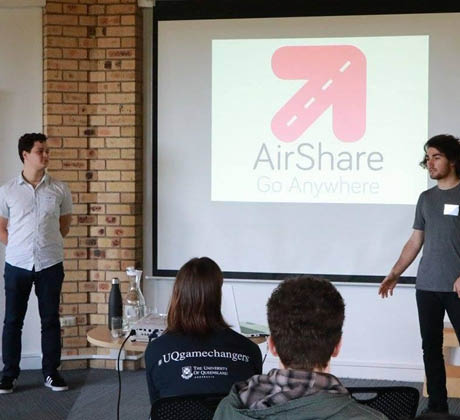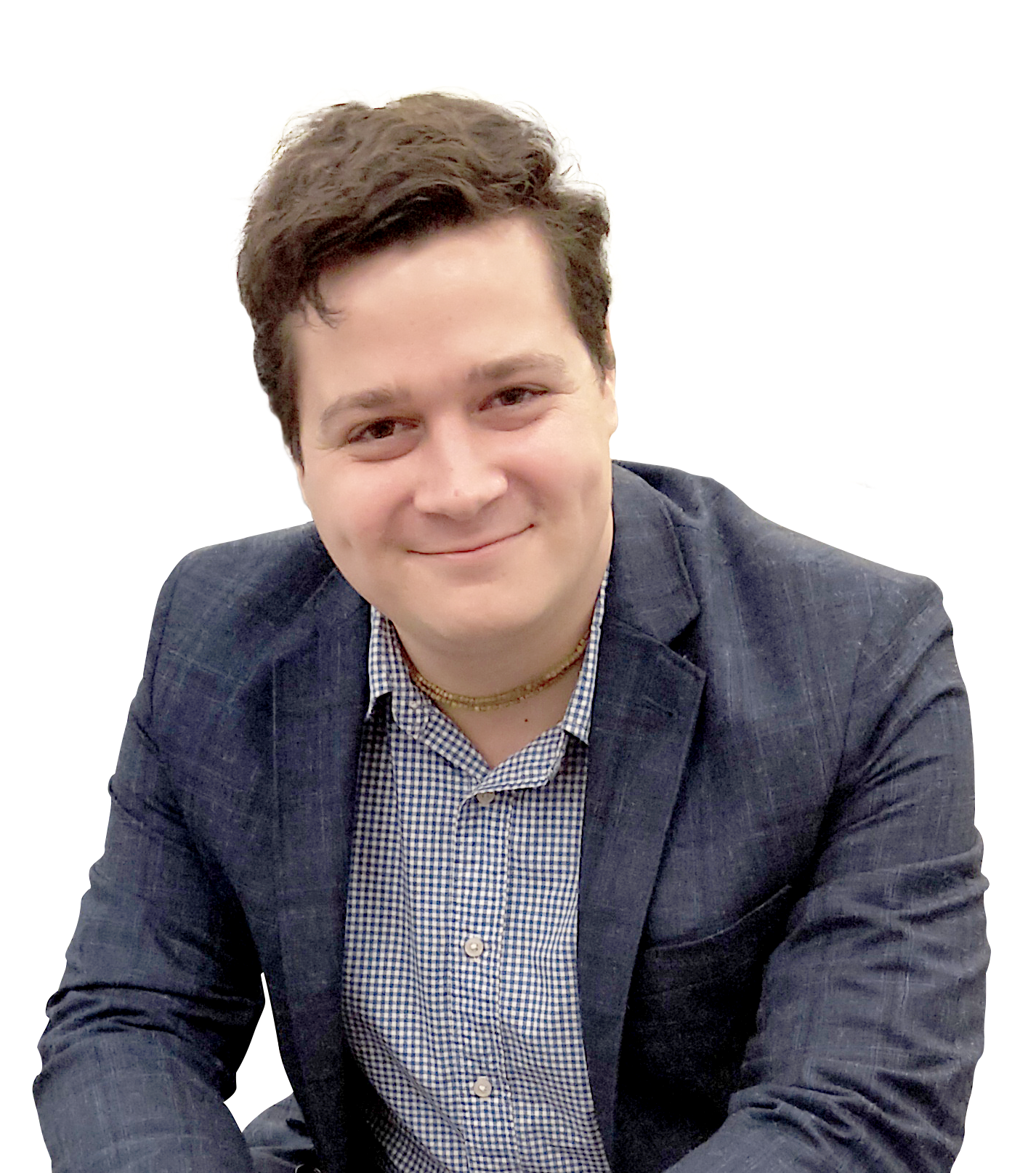Our revenue target for the 2020 calendar year was $3M. Due to Covid-19, it had been revised downwards to $1M.
It has often been said that you cannot achieve growth, without actively seeking ways to get out of your comfort zone. This is true in both a personal and business sense. It is for that reason I have made it my mission over the past few years to push my own envelope. Every single time you feel nervous about doing anything whether it be a speech or a cold sales call, all it means is you have to do it so much more! Perhaps the most uncomfortable situation I have put myself in to thus far is to launch a startup. We took AirShare from a bedroom idea through to launch, revenue, profitability and now navigating through the Corona Virus Pandemic.
While all of that can sound quite grand, believe me when I say none of it came overnight and not much was easy. The things we (Myself: Gauranga Magriplis & Co-Founder: Jack Buscombe) had on our side was baby steps and the ability to learn everything we needed to either online or through Brisbane's thriving startup ecosystem. I believe there is already sufficient knowledge on YouTube alone to be able to launch a business and learn everything you need to know; at least for the first year or so in business!
The AirShare story in one way or another began when I started University at Griffith. I didn't study business or finance, no I was one of the "Aviation Kids." After three years of university and a year of flight training I was a fully fledged commercial pilot, employment ready! So I did exactly what all my peers were not doing; startup land!
Now before I blab on and on I should probably provide some context as to what we actually do. AirShare is an online two sided market place for flight experiences. Thus far we have partnered with 25 operators around Australia and are adding new locations and experiences all the time. The problem we are solving for our partners is the issue of latent capacity of scenic flights (e.g. helicopter rides, hot air balloon flights etc). From the research we conducted we found that there are approximately 300,000 scenic flights in Australia annually. Of these 300,000 scenic flights, 35% carry latent capacity.
This is an issue because when going on a helicopter flight for example you need to pay for the entire helicopter and pilot regardless of number of seats or passengers on board.

This means one of two things. Either the customer is paying for space on the aircraft they are not using, or the aircraft operator is under capitalising on the machine. We fix this by selling individual seats on a particular scenic flight and ride-sharing the flight. That way our customers pay less and the operator can earn more when aircraft are used at capacity.
Lean startup
I completed all my studies and flight training in July of 2017, by October all my possession were either sold or loaded into my Camry. I moved back to Brisbane from northern NSW. Enlisted the help of a friend (Jack Buscombe, AirShare Co-Founder) and we got to work! Our first notable move was to apply for the iLab accelerator. While we excelled at pitching, it quickly became clear we were the earliest stage idea that was applying for the program. By that I mean we were literally just, and to quote one of the judges "two dudes and a cool idea."
Long story short we did not get into the program, but we did learn a wealth of knowledge that really put us on the right track. With that came an entire avalanche of mistakes and lessons we had to learn from.

The first lesson and most important of which is to be LEAN LEAN LEAN! More formally known as Startup Methodology this was drilled into us at the boot camp. Essentially it is the practice of getting an idea to the stage where you can call it a business. All while maintaining minimal capital expenditure, and living in your target market's pocket so you can understand how best to solve the problem you are working on.
While this is a massive oversimplification, the essence that one should take away from this is the fact that you MUST find a problem or market to service BEFORE building the product. While this may feel like a convoluted way of doing things (people often ask "How am I supposed to offer a product or service to a customer if I have not built it yet?") the alternative is to spend years of your life and thousands of dollars building a product all while you really have no idea if the market even wants it. This can be a huge issue because there are many examples of early stage businesses and even huge companies spending vast sums on building products that no one wanted (Think Google Glass, cool technology but no one knew what to use it for). For more on startup methodology have a look at this great little video from Stanford.
Launching AirShare
After a few months of slowly putting into practice what we had learned from the iLab, boot camp and being laughed out of a few meetings with charter operators, things started to turn go our way. We were accepted into the Horizons Tourism Accelerator and we had secured our first partner. That was a massive achievement in itself, for us it meant that we now actually had product to sell.
For a startup that had no traction, no track record, no revenue and hardly a website yet this was big for us! From that point we scrambled, I spent most of that night drafting a brokerage contract and showed it to a lawyer the following day. The afternoon of that same day we had the contracts signed sealed and delivered! Five days after that on Saturday 27th of September 2018 we went live with a full suite of helicopter experiences based out of Archerfield Airport in Brisbane. The day we went live I had already started trying to sell. I had twisted the arm of my first customer (a good friend of mine) into going on one of our flights. Between our launch and the end of the calendar year we had done about $5000 in revenue. Not a life changing figure but for a company that had been live for two months we were pleased with our achievements. We had successfully sold products, rideshared flights and proved the concept.
Business Growth Is Never A Straight Line!
Revenues from Q4 2018 had obviously been bolstered by the holiday season. A hard truth we had to swallow when at the end of January 2019 we had only done $138 in sales. It was at that point we decided that the next 3 months were to be dedicated to search engine optimisation (SEO) and to massively growing our offering and partnerships. This meant that by mid-year we had 18 different charter partners in 15 different locations around Australia.
From there our focus changed again, now that we had proved the concept and built a good amount of the platform we were able to focus on marketing and revenue. AirShare had its first profitable month in June 2019, but as I said at the start of this section growth is never a straight line. We didn't turn a profit again until October 2019. But from there we took off! In December 2019 we grossed just shy of $100k for the month, this amounted to about 350 bookings some worth just $69 and others for $2500 and up. A sensational end to the year and it put us in a position to really move in 2020.
But, as we all know now the start of 2020 had different ideas. The massive Australian East Coast bushfires decimated tourism and then not long after that COVID-19 started to appear in Australia. In a matter of weeks our core business had become outlawed and the company went into stasis. Looking back on COVID I believe most people will only see it as a bump in the road. At the time however, for us it meant that our plan for the year went out the window. Our revenue target for the 2020 calendar year was $3M. It has since been revised to $1M. While that is a significant reduction I think it is important to focus on the positives, after all the biggest digital transformation motivator has been this global pandemic. Businesses all over the world have realised that it does not matter where their staff are located and that for numerous businesses they can do more stuff online. What matters is not how many hours your staff are putting in but are they being productive and effective and are we supporting them enough to be that way?
Getting into startups
Even if you have no intention on giving it a go alone and starting something. I still would encourage anyone to go to a startup weekend or a hackathon (See up to date list of hackathons here). It is where you will learn all about lean startup methodology, rapidly prototype and launch an idea or service all in the space of a weekend. Oh and most importantly it will force you into a few uncomfortable situations. Whether that be in the form of public speaking or talking to complete strangers on the street trying to get customer validation, or indeed customer invalidation.
The reason I encourage people to go to one of these weekends is because the skills you pick up are FANTASTIC and they are all transferable. Moreover, for the individual it means when the time comes to be employed by an organisation. You will actually have a good but basic idea of what goes into launching a product or service. Because at the end of the day that is all a business is, a group of people making a living by providing a product or service.
So go for it, put yourself in a few uncomfortable situations and get better from them!

Meet the author
Gauranga Magriplis (Class of 2015)
Gauranga is the Co-Founder of AirShare and is a self confessed aviation nerd. Gauranga first realised his love of aviation when taking a gap year after after high school and travelling a lot! It was on a flight from Brisbane to Queenstown, New Zealand that the light-bulb moment struck. Fast forward six months and Gauranga had started a Bachelor of Aviation at Griffith University in Brisbane.
